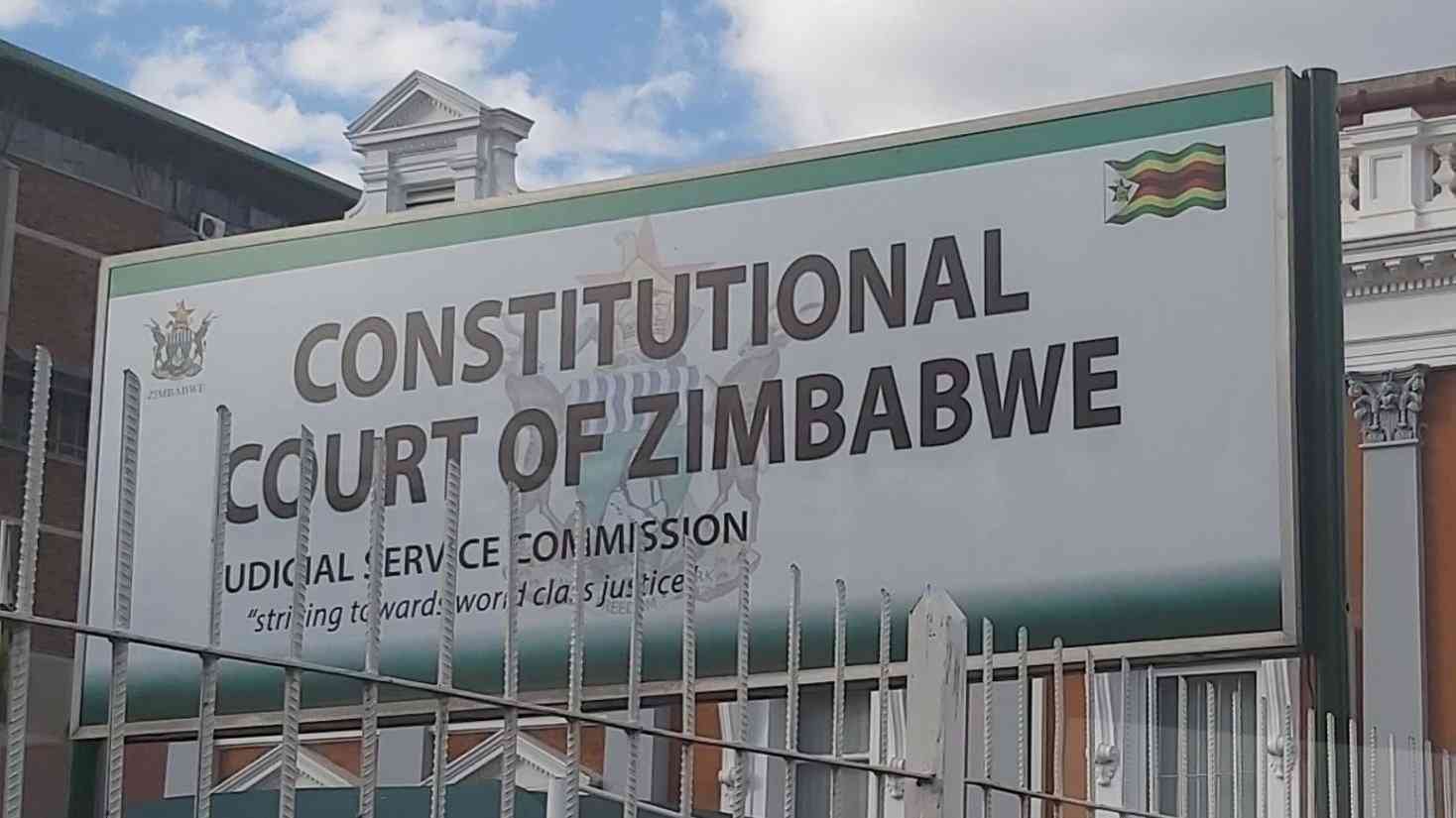
THE Constitutional Court (ConCourt) bench has dismissed an application filed by a local construction company,Fairclot Investments, challenging payment of US$4 800 000 it is owed by Augur Investments in the local currency.
Fairclot Investments in its application to the ConCourt had cited Augur Investments, Doorex Properties, The Sheriff of Zimbabwe and the Registrar of Deeds as the respondents.
ln their application for an order for direct access to the ConCourt heard by the bench that consists of Justice Paddington Garwe, Rita Makarau and Annie Gowora, the applicants were also seeking a declaration that its rights to the protection of the law and to a fair hearing, were infringed by the decision of the Supreme Court of Zimbabwe in judgment SC 93/23.
The Supreme Court had determined two appeals by Augur Investments and Doorex Properties pertaining to an arbitral award issued in 2015 in favour of Fairclot Investments which was registered as an order of the High Court on June 26, 2019 that was affected by the provisions of S4 of the Presidential Powers (Temporary Measures) (Amendment of Reserve Bank of Zimbabwe Act and Issue of Real Time Gross Settlement (RTGS) Dollars Regulations Statutory Instrument 33 of 2019.
The statutory instrument provided, amongst others, that with effect from the date of its promulgation, February 22, 2019, all assets and liabilities that were, before that date, expressed in United States dollars were to be deemed to be values in RTGS dollars at a rate of one to one to the United States dollar.
The Supreme Court, after hearing the parties, made a determination that the fact of the registration of the award did not affect its status as an asset or liability that was affected by S.1.33/19 and that the registration had been done simply for purposes of execution.
It further determined that the debt was payable at the rate of one United States dollar to one RTGS dollar pursuant to S. 1. 33/19 and this was a determination on a non-constitutional matter and that the decision was final.
Fairclot then sought to persuade the bench to find that the decision was wrong and that it violated its fundamental rights. lt also sought the ConCourt to set aside the Supreme Court judgment.
- Massive Harare land wrangle heats up
- Zim’s desperate power situation points to poor planning
- The devil in the detail
- Voedsel, farmers clash over tobacco payment
Keep Reading
According to the history of the matter, Fairclot Investments obtained an arbitral award against Augur Investments in the sum of US$4 800 000 excluding interest on March 19, 2015.
Augur Investments attempted, unsuccessfully, to challenge the award and on May 6, 2019 the Supreme Court dismissed an appeal by Augur Investments against a judgment of the High Court dismissing its application for the setting aside of the arbitral award.
On February 22, 2019, S.1.33/19 was promulgated by the Minister of Finance and Economic Development. Thereafter, Faiclot Investments applied for the registration of the award and this was granted through an order of the High Court dated June 26, 2019.
A writ of the execution was issued on July 10, 2019, resulting in the judicial attachment of Augur Investments’ immovable property known as Stand 654, Pomona Township, held under Deed of Grant No. 2884/10. Subsequent to the registration of the award and the issuance of the writ of execution, Augur Investments paid the sum of RTGS 4,800,000 as full payment of the debt.
Thereafter the Sheriff, wrote to Fairclot Investments informing it that the debt had been discharged and that it was his/her intention to remove the property from judicial attachment.
Irked by the Sheriff’s decision, Fairclot Investments approached the High Court seeking an order declaring that the judgment debt had not been extinguished given that, after registration of the award as an order of court, the amount had to be paid at the prevailing interbank rate of the day and not at the rate of one United States dollar to one RTGS dollar.
It also sought to attack the decision of the Sheriff to remove the property from judicial attachment and to treat the writ of execution as having been satisfied. Augur Investments then filed an application at the High Court seeking a declaratur that the arbitral award be settled in RTGS4 800 000 at the rate of one to one to the United States dollars and that it had fully and finally paid the award.
The High Court then ruled in favour of Fairclot Investments and dismissed the Augur Investments application. The High Court then ordered the Sheriff to pay the costs of suit on the higher scale and that the property in question be placed back under attachment.
Aggrieved by the decision of the High Court, Augur Investments appealed to the Supreme Court against the High Court ruling. The Supreme Court found that the arbitral award granted in 2015 was subject to the provisions of S.I 33/19, notwithstanding its late registration after the effective date of February 22, 2019.
It then set aside the High Court decision and substituted the order with one granting the Augur Investments’ application for a declaratur and dismissing the application filed by Fairclot Investments for a declaration that S.1 33/19 was not applicable and that the award was payable at the inter-bank rate.
However, Fairclot Investments approached the ConCourt arguing that its fundamental rights guaranteed in the Constitution of Zimbabwe have been violated by the “the effects” of the decision of the Supreme Court in a non-constitutional matter.
But Augur and Doorex opposed the application arguing that the application was an appeal disguised as a constitutional issue. They also argued that the application was improper as it seeks to interrogate the correctness of the decision of the Supreme Court. The judges of the ConCourt however upheld some of the Supreme Court decisions and said the applicant failed to show violation of rights in the application.
"Having considered the facts of this matter as whole, it appears to me that no violation of the applicant’s rights has been demonstrated. What is clear is that the applicant is unhappy with the determination made by the court a quo that, notwithstanding its registration, the provisions of s 4 (1) of S.1 33/19 were nevertheless applicable to the arbitral award. "There can be little doubt that this application is nothing more than a disguised appeal against the decision of the Supreme Court.
That is why the applicant went to great lengths to persuade this court to grant direct access on the basis that a wrong decision of Supreme Court should be regarded as a violation of its rights under s 56 (1)," the judges ruled.
“The decision made by the Supreme Court was on a non-constitutional issue. It has not been demonstrated that the court, in coming up with that decision, violated the applicants rights under s 56 (1) and 69 (2) of the Constitution.
"Accordingly, the intended application does not enjoy any prospects of success should leave for direct access be granted. It would, therefore, not be in the interests of justice to grant the applicant leave for direct access to this court ," the judges said while dismissing the application.











